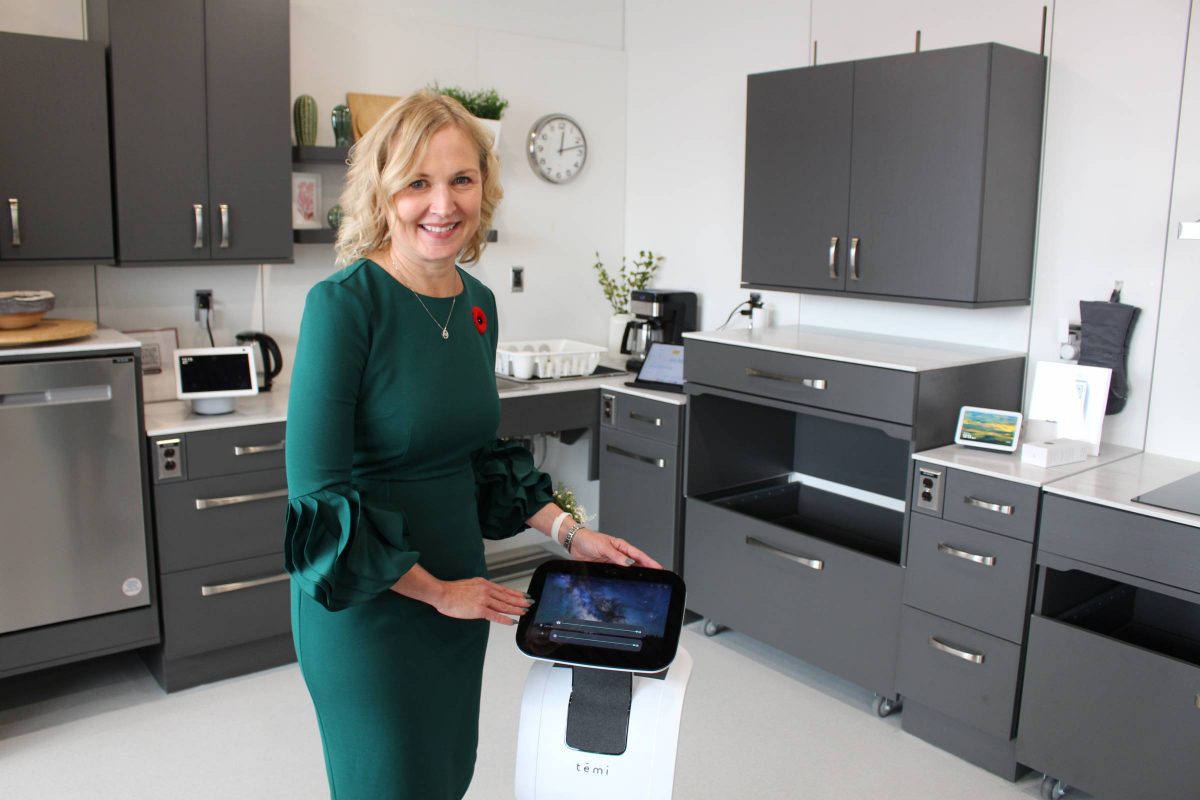
Dr. Jacquie Ripat
UM and B.C. researchers collaborate to improve wheelchair technology and accessibility
As anyone living in Canada knows, the northern climate can create barriers to mobility, especially during the winter months, even for those without physical impairments.
While self-propelled wheelchair technology has made great strides since its invention in the mid-17th century, there are still many ways in which the current technology falls short of making life truly accessible for wheelchair users.
Dr. Jacquie Ripat, professor of occupational therapy and vice-dean (academic affairs) of the Rady Faculty of Health Sciences, was recently named the first Endowed Chair in Technology for Assisted Living.
The chair, based in the College of Rehabilitation Sciences, is supported by UM and the Health Sciences Centre Foundation.
Ripat’s central priority is generating research opportunities while testing the latest innovations in the ever-expanding field of technology-assisted living.
Recently, she has partnered with Dr. Jaimie Borisoff, a specialist in rehabilitation engineering design at the British Columbia Institute of Technology (BCIT), to research innovative methods of expanding current wheelchair capabilities.
As the director of MAKE+, an applied research team at BCIT, Borisoff has spent more than 20 years working to improve wheelchairs and assistive devices. He and his team have previously been responsible for commercializing a lightweight wheelchair with an adjustable seat and backrest to suit various daily activities.
Together, Ripat and Borisoff hope to create products that allow manual wheelchairs to be modified to better suit different environments. For example, wheels could be changed to adjust to more difficult terrain.
“We hope we can make wheelchairs go places where wheelchairs can’t go right now,” says Borisoff, who represented Canada in wheelchair basketball at four Paralympics. “Those are places like the beach, rough terrain and snowy areas.” Wheelchairs might even be able to handle stairs and climb over obstacles, he says.
Thanks to recently announced funding from the Canada Foundation for Innovation (CFI) – Innovation Fund, the pair will have access to the most cutting-edge wheelchair technology. This will allow them to investigate wheelchairs’ performance and see how the chairs can be modified to meet different needs.
The funding will also allow them to expand their wheelchair performance test courses at BCIT and UM. Inspired by Manitoba’s often snowy environment, the test course at UM will specialize in testing wheelchairs in winter conditions.
Few wheelchairs on the market have been designed to navigate the hurdles posed by the Canadian climate, Ripat says.
“Paved roads and sidewalks often aren’t available,” she says, “and people are using wheelchairs in conditions that are very difficult to navigate. We’re really interested in working with some of our rural, remote and northern partners to see how we can improve wheelchair mobility.”
Ripat and Borisoff hope to put a Canadian spin on this technology. They plan to one day showcase their innovations on the international stage by competing in the Cybathlon, a competition for assistive technology development held in Switzerland.
“Congratulations to these researchers for receiving support through the CFI – Innovation Fund to advance this innovative research,” says UM Vice-President (Research and International) Dr. Mario Pinto. “I’m confident that by combining expertise from UM and BCIT, this work will lead to improved accessibility for Canadians and those abroad who experience mobility issues.”
Research at the University of Manitoba is partially supported by funding from the Government of Canada Research Support Fund.






